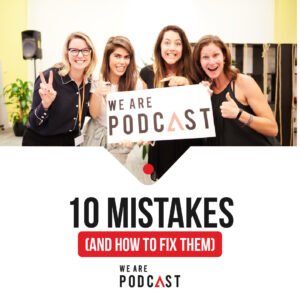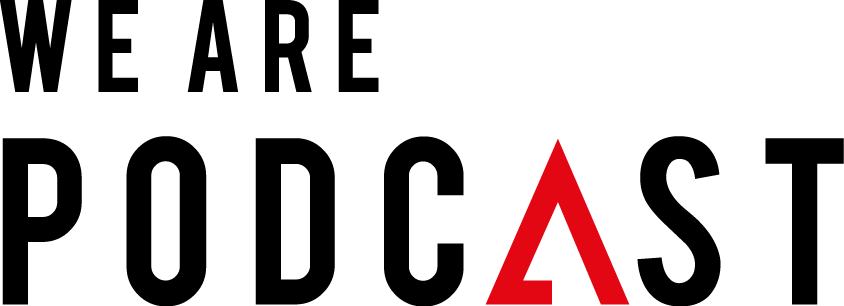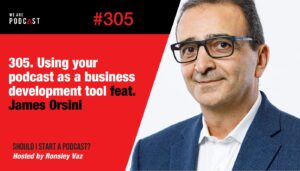In this article, I’m going to show you some ways to manage your podcast effectively. You’ll learn how to create a workflow that works for you, how to find your ideal voice and style, and how hosting on a good platform will help listeners find your podcast. Lastly, we’ll talk about some details that make all the difference in creating a great episode.
1. Manage your podcast effectively
If you want to listen to a podcast episode I did with a podcasting Hall of Fame legend about managing your podcast effectively … this is where you’ll find that –
2. Start with a solid workflow.
You’re a busy person. You have a full-time job as a business owner, maybe even a side hustle or two, and many obligations in your personal life. You probably don’t have time to sit down with every new episode of your podcast and make sure it sounds like something you could be proud of. That’s why it’s so important to establish an effective workflow for managing your podcast that allows you to spend as little time possible on any one task.
How do you create a workflow? What should go into it? How can I use my workflow effectively?
We here at We Are Podcast are here to help! We will provide some basic tips for creating your own workflows and how they can help optimise the production of your show while minimising the amount of time spent on each process.
3. Find your ideal voice.
To find your ideal voice, you need to figure out what it is. What does the podcast sound like when you’re talking or singing? When are you at your best? When do people seem to really enjoy what you have to say?
- Be yourself.
- Don’t try to be someone else.
- Don’t be afraid to be yourself.
- Don’t try to be the “cool” person
4. Be clear on who you’re talking to.
Once you know who your audience is, it’s easier to create content that will speak directly to them. If you’re trying to reach a younger audience, for example, you may want to include more pop culture references and slang in your podcast. If most of your listeners are over 35 years old, then that kind of language won’t resonate with them.
It also helps if you have ideas about what topics would be interesting for the people on your mailing list or social media followers. For example, if someone follows a podcast about running and they live in an area where there are lots of trails available within walking distance from their home, they might enjoy hearing more stories about other runners training on those trails.
 5. Host your podcast on a good platform.
5. Host your podcast on a good platform.
Hosting your podcast on a good platform is very important. Not only is it the right thing to do, but it can also help you get more listeners and downloads if you host on a platform that has good SEO.
A podcast hosting platform is an online service that allows podcasters to upload their podcasts and make them available for download or streaming through the Internet. There are many different ones out there, but here are some of the most popular: Libsyn, Buzzsprout, Audioboom.
6. Figure out the details of the episode in advance.
The first step to planning a podcast episode is listening to other podcasts. You can learn a lot about what you like and don’t like in an episode from the way other people structure their episodes. Pay attention to the length of each section, whether or not there are natural breaks between sections, how much time is spent on each topic, etc. The goal here isn’t necessarily to copy these episodes but rather just get an idea of what works well for you as a listener and creator. Use this information when planning out your own episodes so that you’re confident in your ability to deliver content that keeps listeners engaged throughout each episode.
Once you’ve listened to some podcasts that appeal to your interests, write down topics or story lines (and potential questions) that interest you most—this will be helpful when brainstorming ideas later on in this process! Also make sure that all of the resources necessary for recording this section are gathered together so nothing gets forgotten last minute; think about things like microphones and headphones if relevant!
7. Enjoy podcasting and don’t stress yourself out too much
Enjoy the process. Don’t get stressed out about it. Podcasting is a fun, creative hobby and you should enjoy every part of it!
It’s too easy to focus on the results and forget about the journey. But remember that recording, editing and publishing a podcast takes time. You can’t rush things or expect instant success – in fact, you might not even see any results at all for several months! So take your time and enjoy each step along the way: recording your episodes, editing them together into one seamless show (or not), then finally publishing it online so people can find it in iTunes or Spotify or whatever they use these days…
Keeping your podcast organised takes some work, but it’s worth it. It doesn’t have to be a huge time-suck, and you can even think of it as an opportunity to get better at managing other aspects of your life. So don’t stress yourself out too much!
Again, If you want to listen to a podcast episode I did with a podcasting Hall of Fame legend about managing your podcast effectively … this is where you’ll find that –


